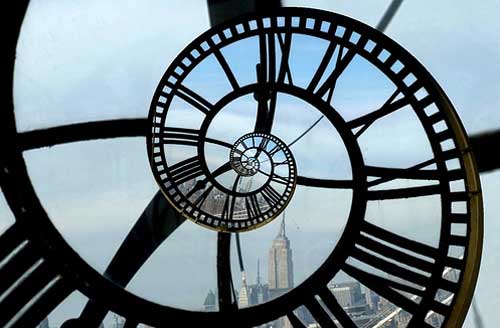 We all know it – the clock shift is stupid. Days are longer in the summer so we can keep the mornings mostly the same and shift the extra sunlight to the evening. Whether or not you prefer daylight saving to standard time is your personal preference and I am not here to tell you which to like. But having a time system that requires a shift twice a year is retarded and it’s about time we did away with it.
We all know it – the clock shift is stupid. Days are longer in the summer so we can keep the mornings mostly the same and shift the extra sunlight to the evening. Whether or not you prefer daylight saving to standard time is your personal preference and I am not here to tell you which to like. But having a time system that requires a shift twice a year is retarded and it’s about time we did away with it.
What does shifting the clock actually accomplish? There are numerous studies and the short answer is either it saves electricity or it doesn’t. Seriously, that is about all we know about modern daylight saving time. Having more sunlight in the evening reduces the use of lights but very likely increases the use of air conditioning. But what do we need to deal with to keep it going? A giant pain in the ass, that’s what. Sunlight times are going to vary no matter what. Why not keep the change more gradual instead of throwing it in our faces in a single moment?
Reminding the country to change clocks once a year and then again to change them back sounds like an exercise in futility. It is like we are forever adjusting our perception to look for the perfect schedule but can’t quite pin it down. Listen, this is the deal. We can make time whatever we want it to be – there is nothing about the sun that says, “It is now 5:50 PM.” It’s all arbitrary since the rotation of the Earth causes days of different lengths that a fixed hour can’t deal with elegantly. Add the complexity of time zones and you could be in one place at 2:00 and 10 feet away it could be 3:00. Trust me, the sun looks to be in exactly the same position from both those vantages. Some countries, like China, don’t even have time zones and average it out so that most of the country is on an equal time.

But enough about the complexities of world time. The point is that we can declare time to be anything we choose. So whether we decide to roll GMT-8 or GMT-9 is of no consequence – what matters is that we keep it consistent to make it easier on, not only ourselves, but all the other countries who care to know what time it happens to be in the United States. I am a programmer by trade and one of my major beefs within my profession is when engineers try to be more clever than is needed. Usually the simplest solution works best. When you add underlying complexities to a system you are adding more points of failure- more moving parts means there is more to break down. There are scheduling, health, and economic repercussions to the change, and it is ironic that software engineers devote countless man hours to support the time changes because of their more dangerous cousins, social engineers.